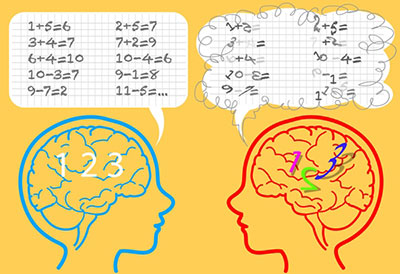Growing up, I was always the child who was great with words. In the same breath, I was and still am terrible at anything relating to numbers. Ironically enough, I’m an entrepreneur, but we’ll save that success story for a next column piece. I remember when I was writing examinations, one exam always gave me the jitters — Mathematics! I can embarrassingly yet freely speak for myself when I say I’ve had cold sweats, migraines, and even nightmares about writing the subject of mathematics.
I’ve attended three extra lessons and even had private math tutoring with my uncle, a former educator, during my CSEC years; plus, I attended regular classes in school and even all of that—the best I could’ve pulled off at the CSEC level was a grade 3. That is still a pass; in my eyes, it’s a win. However, I can’t stress enough the amount of effort and overtime work I’ve had to do, just to get that. Whenever someone gives me a number of related scenarios or problems to solve, my response is always, “math isn’t my thing. Try someone else.”
I’ve constantly asked myself, “why?” After several years, I think I finally got my answer this week when someone introduced me to the concept of “dyscalculia.” Unlike Dyslexia, Dyscalculia isn’t well known or understood at many levels of education and learning. In fact, even as a trained social worker—I was unaware of such a term until now. Dyscalculia or Mathematics learning disability is when someone has a challenge or problem with learning mathematics.
Just like dyslexia, a common misconception about this is that children will somehow “outgrow” it, but this isn’t the case. People with this mathematics learning disability may have challenges in different ways—not everyone is the same. Many people, especially parents and teachers, misjudge dyscalculia as just a student or child being “bad at math.” At least that’s how I was and still am being viewed. This learning disability is not funny, it’s not to be taken lightly and it’s definitely something that can affect a person into their adulthood. Mathematics is one of modern life’s most fundamental topic areas and concepts. Failure to understand and grasp it can result in an inability to efficiently complete everyday tasks accurately or in a timely manner.
Dyscalculia is real. Dyscalculia is not just a phase. Dyscalculia is based on the sciences. Dyscalculia can be caused by genetics—it’s hereditary and can be passed down from parent to child. While I was never evaluated for it and my claims of having it are not backed up by a doctor, I believe I am challenged with based on my own understanding. Some common signs of dyscalculia in school-aged children are problems remembering math facts (such as timetables), not being able to count, recognizing the same mathematics problem if it’s turned the other way around, and doing simple calculations from memory. Some common signs in adults include being unable to count backward, solve word problems, and unable to understand or convert fractions. Do you remember my anxiety and cold sweat from earlier? Well, it turns out those are some other signs of dyscalculia. There are emotional symptoms such as anxiety (test anxiety) during examinations and even physical symptoms such as vomiting or sweating.
If you’re a parent and you’ve noticed your child having a difficult struggle, a harder time than they should in mathematics, then I’d advise you to get them help from a psychologist or psychiatrist as soon as you can. You can also try to improve their skills and abilities through one-on-one training and tutoring. For adults, unfortunately, there are not many options for dyscalculia. However, I urge you to use your modern technology such as calculators and the internet to help—there’s no shame in that! You should not be embarrassed or ashamed of it; I definitely was, but as I read and understand a bit more about this learning disability, the less I feel alone and ashamed of it. I’m not a lazy mathematics student, nor am I a “dunce” in it. It feels good to know that something that I’ve been struggling with all my life, has an explanation for it.



.jpg)











